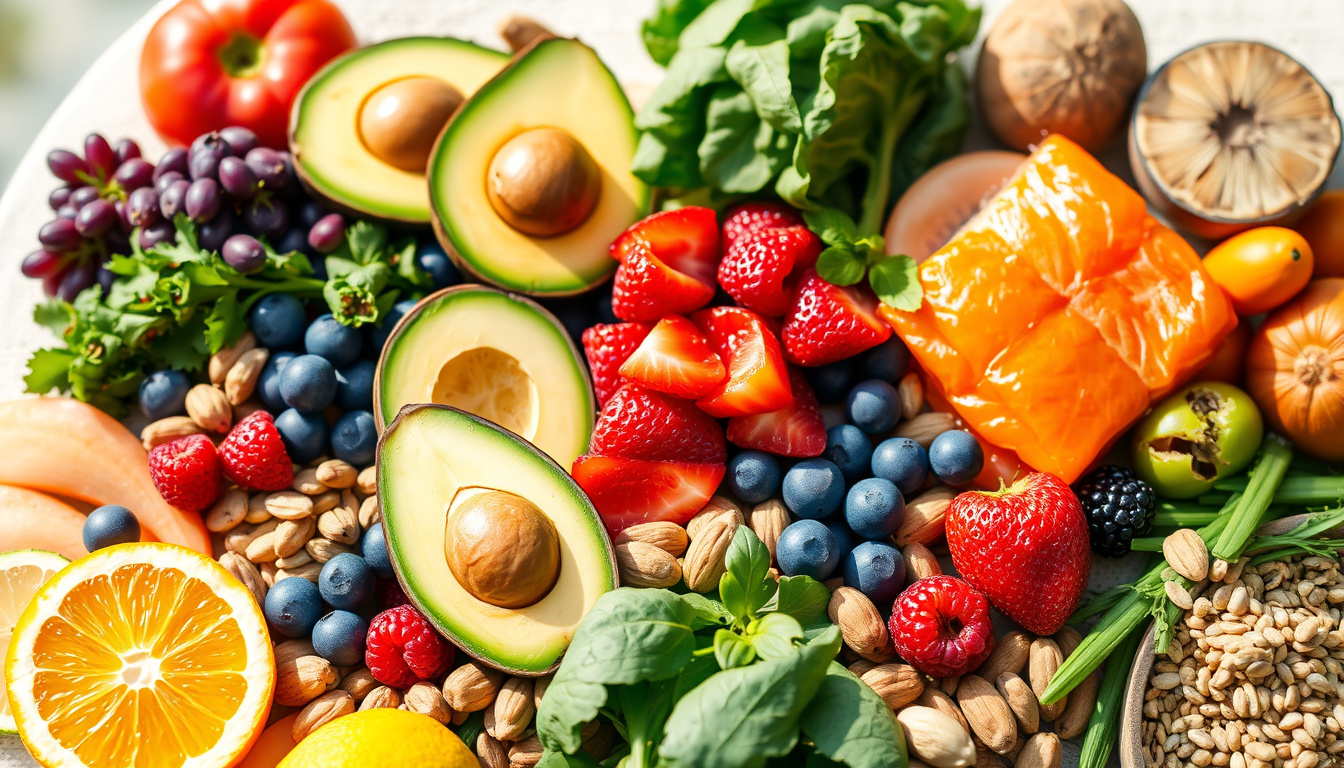In today’s health-aware world, people search for ways to feel well. Many try new diets and superfoods. Functional foods get much praise for helping you stay healthy and ward off long-term issues. What are functional foods? How can they help you live a livelier life? In this guide, we list their benefits, show how to add them to your meals, and explain why they matter in modern health.
What Are Functional Foods?
Functional foods give more than simple nutrition. They pack vitamins, minerals, fiber, and plant compounds that work with your body to lower disease risk, boost your defense, and improve overall well-being. Regular foods give energy and basic nutrients. Functional foods do that and more. For instance, yogurt with good bacteria helps your gut; fatty fish gives omega-3 fats that help your heart; and oats have fiber that can lower bad cholesterol. These foods work best alongside a balanced diet and active life.
Types of Functional Foods
We can sort functional foods by where they come from or their health perks. Here are some common types:
- Foods with good bacteria: Yogurt, kefir, sauerkraut, kimchi
- Fortified items: Breakfast cereals with added vitamins and minerals, plant-based milks with extra Calcium and Vitamin D
- Whole grains: Oats, barley, brown rice – rich in soluble fiber and antioxidants
- Fruits and vegetables: Full of plant compounds, vitamins, and antioxidants
- Nuts and seeds: Almonds, chia seeds, flaxseeds hold healthy fats, fiber, and omega-3s
- Omega-3 foods: Fatty fish like salmon, mackerel, and eggs with omega-3
Benefits of Adding Functional Foods into Your Diet
Using functional foods in your meals can help in many ways. They can work with your heart, gut, immune system, and weight control. They may also lower the risk of long-term diseases.
1. Heart Health Optimization
Fatty fish and some nuts supply omega-3 fats that cut heart risks. Oats and berries help lower blood pressure and improve cholesterol levels, so your heart works better.
2. Gut Health and Digestion
Yogurt and fermented vegetables bring good bacteria to your gut. This supports smooth digestion and a stronger defense system. Foods rich in fiber feed those friendly gut bugs.
3. Immune System Boosting
Many functional foods hold antioxidants, vitamins, and plant compounds that support your body’s defenses. Citrus fruits, garlic, ginger, and fortified items work to keep your immune system strong.
4. Weight Management and Satiety
High-fiber foods like oats, beans, and some fruits help you feel full. This feeling can guide you to control your weight and reduce extra snacking.
5. Chronic Disease Prevention
Regularly eating nuts, seeds, and berries may lower risks for diseases such as diabetes, high blood pressure, and some cancers due to their mix of good nutrients.
How to Include Functional Foods in Your Daily Diet
Changing your eating habits can be simple. Follow these steps:
Step 1: Start Your Breakfast Right
Begin with oatmeal topped with berries and chia seeds or choose whole-grain toast with avocado. You can add vitamins to your cereal or try yogurt with good bacteria.
Step 2: Add More Fruits & Vegetables
Fill half your plate with colorful produce like carrots, leafy greens, and bell peppers. These items pack plant compounds and vitamins.
Step 3: Choose Healthier Snacks
Select nuts, seeds, or fruit for snacks that fill you with good nutrients. Swap out processed snacks for these simple picks.
Step 4: Pick Good Protein Sources
Have fatty fish like salmon twice a week, or use plant proteins such as lentils and chickpeas. These give both protein and fiber.
Step 5: Check Food Labels
Read labels on fortified or healthy foods. Look at the added nutrients and ingredients to be sure you are choosing well.
Top 10 Functional Foods for Your Diet
Here is a handy list of popular functional foods that can boost your health:
- Salmon and fatty fish – rich in omega-3 fats
- Greek yogurt – contains good bacteria for a healthy gut
- Oats and barley – high in soluble fiber and antioxidants
- Berries (blueberries, strawberries) – full of antioxidants
- Nuts (almonds, walnuts) – a source of healthy fats and fiber
- Chia and flaxseeds – provide omega-3s and fiber
- Vegetables (broccoli, Brussels sprouts) – supply valuable plant compounds
- Citrus fruits (oranges, lemons) – loaded with vitamin C and antioxidants
- Fortified cereals and plant-based milks – contain extra nutrients
- Dark chocolate (in moderation) – holds flavonoids that support health
FAQs About Functional Foods
Q1: What are the best functional foods for boosting immunity?
A1: Citrus fruits, garlic, ginger, yogurt with good bacteria, and mushrooms work well to support your body’s defense.
Q2: How do functional foods differ from superfoods?
A2: Superfoods are known for high nutrient content. Functional foods are linked with extra health benefits that research supports.
Q3: Can functional foods replace medications?
A3: No, functional foods add to a healthy lifestyle. They do not replace medicines. Ask your doctor when you need advice.
Why Choose Functional Foods for Better Health?
Using functional foods is a natural method to support your health. Research shows these foods can boost your body’s defense, cut down inflammation, and help you manage weight and long-term risks. A diet that includes many functional foods, paired with exercise and a good sleep routine, builds a strong base for a better life. Experts like those at the Harvard T.H. Chan School of Public Health show that eating more fruits, vegetables, whole grains, and healthy fats can cut the risk of many health problems.
Take Charge of Your Health Today!
Are you ready to use functional foods for a better tomorrow? Start with small, lasting changes to your meals. Add more nutrient-rich foods, check labels, and try new recipes. Your body will reward you with more energy, stronger defense, and a better sense of well-being. A healthier you begins with the choices you make today!




